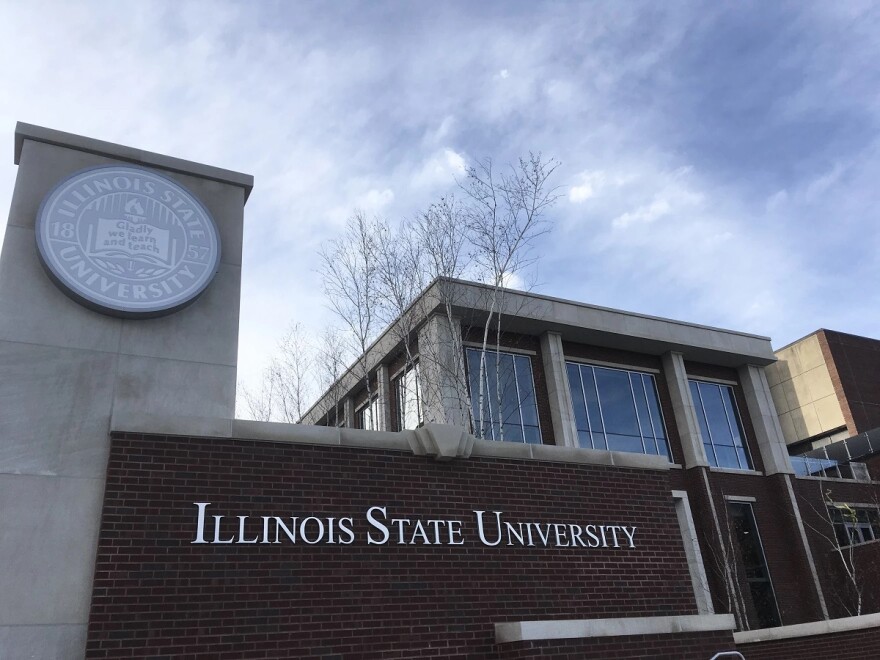Illinois State University researchers have a wide variety of projects at risk of losing funding through announced Trump administration budget cuts to National Institutes of Health [NIH] reimbursement rates. ISU has eight major grants and three sub-awards receiving about $3.5 million for NIH-approved projects.
Craig McLauchlan, ISU's associate vice president for research and graduate studies, said the projects include: the effect of cardiac assist devices on the heart; how hormones impact peri-menopausal psychoses in women; finding new ways to kill certain kinds of bacteria through protein degradation — which could help prevent diseases; how nano-particles bind to antibodies — which has implications for vaccines; and using worms as model systems for human muscle groups affected by the Duchenne variation of muscular dystrophy.
The research ranges across several departments — biology, chemistry, microbiology and the Mennonite College of Nursing.
An NIH database shows there are 19 funded research projects in the 17th Congressional District alone that receive more than $12.4 million. The 17th includes Bloomington-Normal, Peoria, the Quad Cities, and Rockford. . Statewide, NIH has funded nearly 2,000 projects for more than $1 billion, just for FY 2024. NIH grants are often multi-year awards.
The proposed NIH 15% indirect cost cap would reduce reimbursements to ISU by about $238,000. That’s a 68.7% reduction of the indirect costs of the research. McLauchlan said several projects are in the waning years of their grant period and have relatively low amounts remaining for disbursement.
The cuts are on hold for now. Illinois Attorney General Kwame Raoul and his counterparts in 21 other states have filed suit to block the reduction.
ISU said if the proposed reductions stick, they would impact the university’s ability to effectively carry out its research mission.
“As a Carnegie R2 institution, Illinois State prioritizes supporting faculty involvement in foundational research," the school wrote in a statement, which said it was written by university staff. "As a student-centered institution, the university aims to provide similar foundational research experiences for our students. Such a drastic reduction in our indirect cost recovery would have hindered the university’s ability to reinvest in research support services and student research programs, purchasing lab equipment, building research infrastructure, and ensuring compliance."
ISU contends the policy change would jeopardize the institution’s ability to support students, conduct impactful research and contribute to the biomedical and STEM workforce.
ISU has joined a group of institutions from across the country to advocate for change. The situation remains fluid, said ISU.


